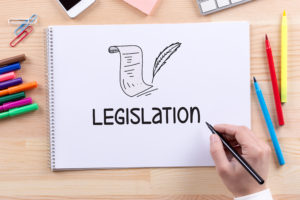
As we wrote a couple of weeks ago, the online sales tax debate is far from over. Although the Supreme Court ruled that states can impose an internet sales tax, Congress can still legislate on the issue. And it looks like it will. Representatives introduced a bill designed to guide sales tax collection requirements for businesses selling across state lines.
About the Online Sales Tax Bill
Introduced by a bipartisan group of House Representatives, the Online Sales Simplicity and Small Business Relief Act was created to provide clarity amidst the confusing aftermath of the Wayfair decision.
As U.S. Representative Sensenbrenner explained in a statement, “This bipartisan legislation reins in the taxation free-for-all created by the Supreme Court’s ruling…online sellers need clarity and stability in the sales tax arena. Our bill will protect small businesses and internet entrepreneurs from excessive regulatory burdens.”
The Online Sales Simplicity and Small Business Relief Act would:
- Ban retroactive taxation; states wouldn’t be able to collect online sales tax from purchases prior to June 21, 2018 (the date the Supreme Court ruled in the Wayfair case)
- Prevent states from imposing sales tax collection duties before Jan. 1, 2019
- Create a temporary $10 million small business exemption, which would be dropped when the states provide a Congressionally-approved interstate compact to make collection simpler for companies of all sizes
- Establish an orderly phase-in of compliance obligations for businesses to follow
Our Thoughts on the Online Sales Tax Bill
What do we think of this legislation? Well, overall it seems reasonable and we’ll definitely follow it. We’ve been fielding calls daily from small and middle-market companies that are panicked at the thought of suddenly having to be in compliance in potentially 25 states (so far), when just yesterday they were filing in maybe a couple of states. The $100,000 sales or 200 transaction thresholds suggested in Wayfair are simply too low, in my opinion. I don’t think the US Supreme Court considered the compliance burdens associated with this ruling and that they’d be hurting small businesses. I think this bill may be a step in the right direction for smaller businesses, and the $10 million exemption would be a larger step toward that.
It will be interesting to see if Congress passes this bill, and how the online sales tax debate continues to unfold following the Wayfair decision. Call me a cynic, but Congress hasn’t enacted legislation in this area since the Quill decision, more than 25 years ago. Will this one finally help the situation?
Of course we’ll continue to keep you updated as more news develops, but in the meantime please contact us if you have any questions about how internet sales tax – or other multi-state tax issues – may affect your business!
Miles Consulting Group, Inc. is a professional service firm in San Jose, California specializing in multi-state tax solutions. Our firm addresses state and local tax issues for our clients, including general state tax consulting, nexus reviews, tax credit and tax incentive maximization, income tax and sales/use tax planning and other special projects. To learn more, contact us today at www.MilesConsultingGroup.com.


















